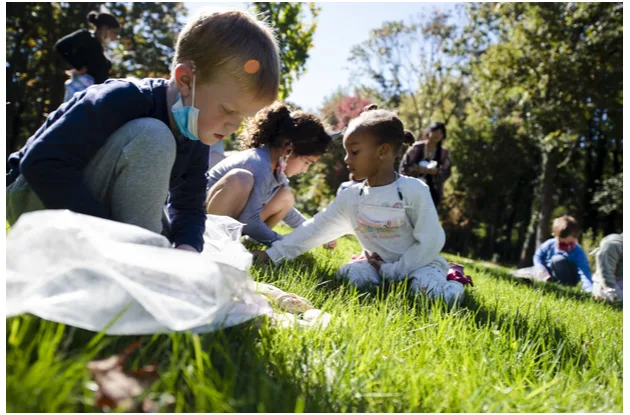Ten-year-old Tim Patton* is having trouble in fifth grade — he’s not doing his homework. His parents are concerned because he also has some learning issues, and the school is recommending that Tim be evaluated, and perhaps begin taking medication. The Pattons* are getting very anxious, but are not sure what to do next.

When parents need help dealing with a troublesome child’s behavior, there is a dizzying number of parenting books that claim to have the answers. Most of these parenting techniques share one thing in common: They suggest ways to exert external control over a child’s behavior. Hastings-on-Hudson’s Dr. Richard Primason, a clinical psychologist who has worked with children and families for over 20 years, maintains that “techniques that advocate external controls don’t work well because they require constant vigilance. No one wants to be controlled, so eventually people push back.” And trying to control kids through external methods can also be damaging to parent/child relationships.
Control psychology which relies on reinforcement, punishment or time outs, does not work because we ultimately cannot control what other people do. With problem behavior, Dr. Primason explains, “A kid will out-control you because you’ll have to keep upping the ante. Either the kid will go further and harm himself to defeat you, or the kid will end up complying. But he won’t learn how to solve his own problem…only how to stop his parents from screaming at him.”
Dr. Primason’s book, Choice Parenting ($13.95, iUniverse), promotes a wholly different perspective on children’s behavior. Based on the principles of choice theory developed in 1998 by psychiatrist Dr. William Glasser, Choice Parenting asserts that everyone always chooses and is responsible for his own behavior.
The three basic tenets of Choice Parenting are:
• Internal Control. We are responsible for what we do. Many people blame their mistakes or difficulties on outside circumstances or past events. About parents dealing with behavioral difficulties, Dr. Primason writes, “to deny their (children’s) essential responsibility for their own behavior will do nothing to improve things and to accept external excuses for their children’s behavior will only enable their dependence and limited self-worth.” Even a child who’s been diagnosed as LD, ADHD, OCD, ODD, etc., can be held responsible for his behavior. “A child may have some skill weaknesses that are not his fault, but he is quite capable of finding ways to meet his academic and social responsibilities.”
• Total Behavior. All behavior is a combination of overt, cognitive, emotional and physiological behavior, so any activity that we do has consequences on all four levels. For example, instead of thinking “I’ve got a headache because my son made me furious,” we need to take responsibility for our own reactions and think about what we could do differently. When we allow our child to make us furious, we are actually giving ourselves a headache. If we change one aspect of our behavior (such as talking quietly to our child instead of yelling), we change it on all levels.
• Best Attempt. Everyone is always trying their best to get more of what they need and want, whether it’s survival and well-being, love and belonging, power and self-worth, freedom, or fun and learning. Understanding this allows us to interpret our child’s behavior with good faith. Says Dr. Primason, it allows us to “appreciate that the problem behavior makes sense; it represents your child’s current best attempt to meet basic psychological needs.”
In Choice Parenting, the priority for parents is to stay connected to their child — this is more important than any lesson they can teach. Dr. Primason advises, “avoid criticizing, correcting and coercing”. Listening, accepting and encouraging strengthen the connection between parents and children.
When a problem arises, Choice Parenting suggests that parents have a serious conversation with their child and discuss their expectations. They need to set their own limits and tell the child what they want, not what he must do. While trying to exert control over kids seems to work because parents may get compliance, the problem usually keeps happening. Dr. Primason explains, “Most people have enough good will in their relationships so that the controlling behavior is forgiven, but when kids have real problems, controlling behavior makes things worse…parents need to reach for connection rather than control.”
Does this mean that there are no consequences for a child’s misbehavior? Not at all. But the major consequence for the child should be a serious conversation with his parents about the problem. “My biggest discovery,” Dr. Primason told me, “is that parents underestimate how powerful their relationship is with their child. They resort to control because they don’t trust how much their child needs to belong and feel accepted in the family.”
Dr. Primason trained with Dr. William Glasser and was impressed with the application of choice theory, but early in his career, he was known primarily as a behaviorist. Other clinicians would refer difficult child behavior problems to him because Dr. Primason was successful at developing behavior modification systems, “specific technical methods to help parents gain greater control over their children’s behavior.” However, over time he realized, “that the potent part of what was working was the improved communication with the parents, the working together…So now I’m a different kind of behaviorist.”
In his private practice, Dr. Primason consults with parents and sees kids (over age 8) with very tough behavior problems and atypical temperaments. The parents are usually at their wits’ end. When he first met the Pattons, mentioned earlier, they’d been relying on threats and rewards to get Tim to do his homework. Tim was doing the minimum, and poorly. After an initial consultation, Dr. Primason told Tim’s mother that she could not force him to do his homework, it had to be up to him. Dr. Primason then talked to Tim and learned that he wanted to be successful in school, but felt he was under too much pressure. So together they worked out a plan: Tim felt he could do half of his homework, and his parents were to back off; however they were entitled to know his plan and check to see that he was accomplishing it. If his plan was not carried out, his parents would have an evaluative conversation with him and they’d have to reformulate the plan. Before long, however, Tim was doing all his homework on his own, and doing it well.
In Westchester, Dr. Primason has observed that “many well-meaning parents tend to be too controlling and involved in their children’s homework, leisure activities, and in all details of a child’s life. It’s important to let the kid go out and have a life of his own.” Kids need to take responsibility for their own behavior.
Dr. Primason uses Choice Parenting techniques with his own two sons, ages 13 and 17, and reports that it’s been pretty successful. The technique can be used not only with children, but in all relationships. In fact, Dr. Primason and colleagues also consult with businesses to help organizations improve teamwork and leadership.
In Choice Parenting, Dr. Primason compares parenting strategies with the work of sculptors and gardeners. Sculptors try to shape the stone into a picture they have in their mind by chipping away at it, i.e. control psychology. Gardeners also have a picture in their minds, but know there are elements out of their control; they can only choose the location, cultivate the soil and nurture the plants. Dr. Primason encourages parents to be gardeners rather than sculptors, “Work hard to provide the best conditions for your child’s growth, but understand that you can’t determine the shape of his life.” Staying connected is the most important thing.
Dr. Primason holds a monthly parents’ meeting at Java Babies in Hastings-on-Hudson where a topical subject and Choice Parenting techniques are discussed. Usually held the first Monday of the month, the free meetings are open to all. To learn more about Choice Psychology or the parenting meetings, call (914) 478-2146 or visit www.choicepsychology.com.
*names changed for confidentiality





















